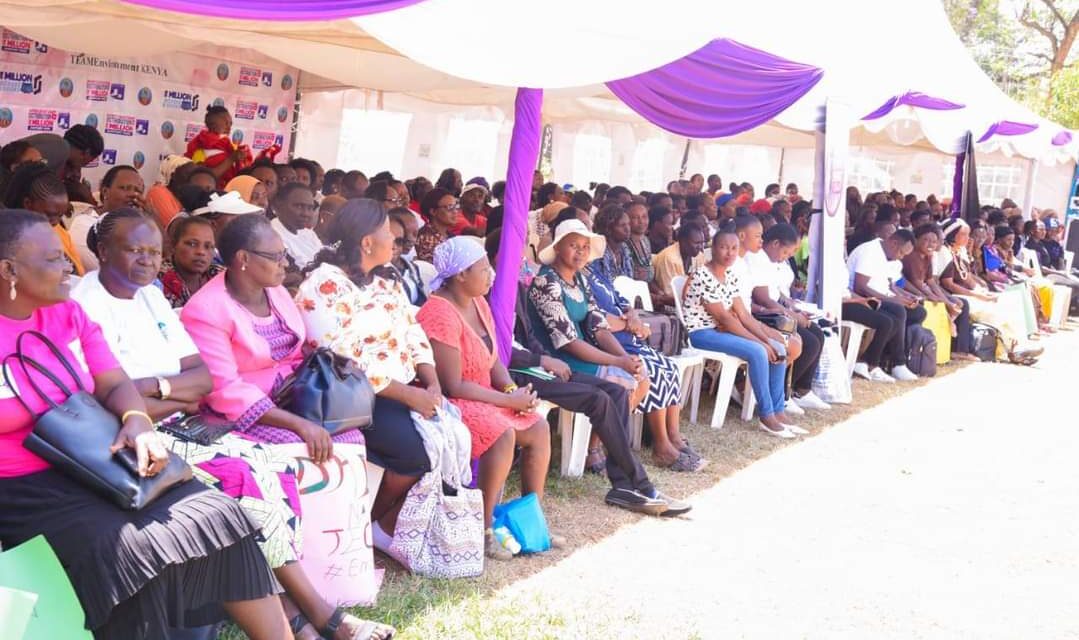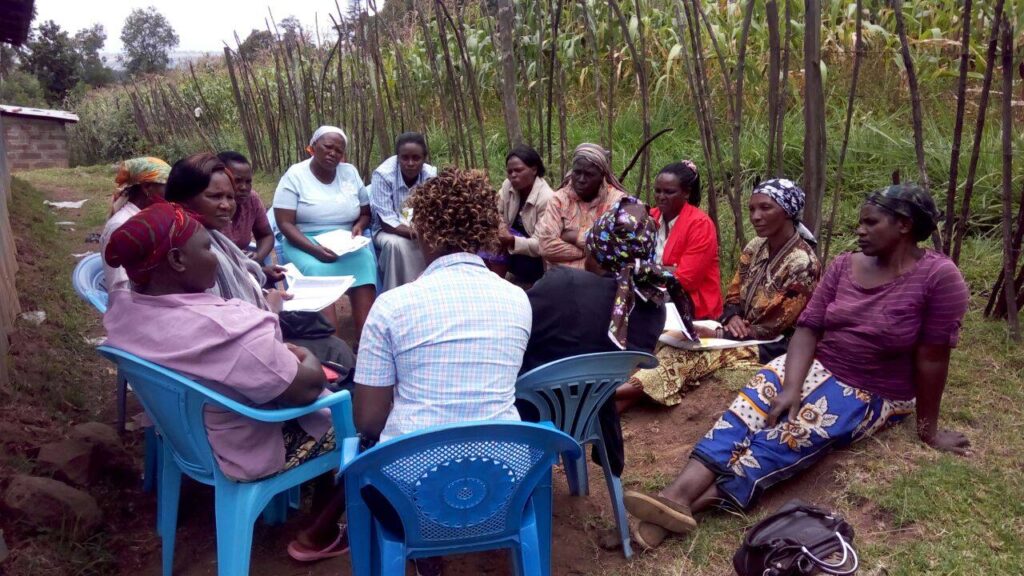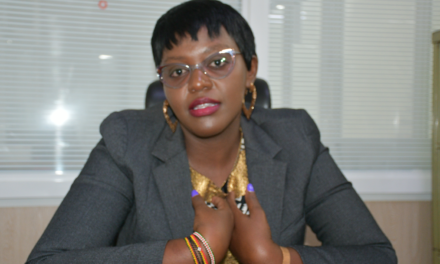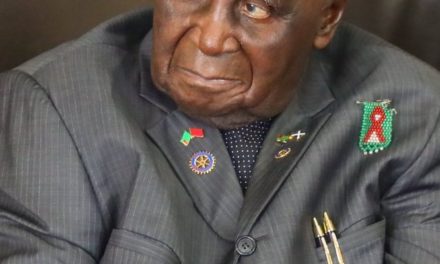
Unsung Heroes Breaking Down Barriers: How Paralegals Are Promoting Access to Justice for All

By Pierra Nyaruai
In any platform, offline and online, the female empowerment movement is stronger than ever, especially in Africa. A quick scroll through social media shows the decades-long movement’s influence on women in Kenya, and in 2022, this was reflected in the political field as well.
Jane Aseka, who has worked in a campaign for political candidates and helped people in her district access government necessities, highlighted the need to address gender inequality and discrimination against women and girls, as they face even greater barriers due to their gender, disabilities, or membership in minority groups.
“Everywhere women are worse off than men, simply because they are women,” Aseka told The Insider in a recent interview, adding people with ‘disabilities and women members of minorities of all kinds face even greater barriers.’
“The discrimination harms us all,” she reiterated.
Meanwhile, Assumpta Wangui Muiruri wants women to engage politically, especially the youth. ” I want to charge youth with responsibility and ensure women have positions in the government,” she said.
Muiruri insists young people play a vital role in fighting corruption, therefore need to be empowered through leadership training, charging them with responsibility, giving them hope, and ensuring their representation in government.
Both women believe that by empowering individuals and communities with civic knowledge, misconceptions about politics can be addressed and transformed into positive action for the betterment of society.
The 2022 Kenyan election saw a 16 percent increase in elective positions with women, which is the highest number to date. Before women become governors and presidential running mates, the journey starts at the community level. Some of the people facilitating a conducive environment for women to dare to dream are paralegals.
Paralegals play a critical role in promoting civic engagement and political participation in Kenya by providing legal assistance to individuals and communities, particularly those who are marginalized and cannot afford legal services.
The Kenyan legal system can be complex and expensive, making it difficult for many people to navigate.
Paralegals are trained professionals who offer legal advice, representation, assistance with legal documents, and educate people on their legal rights and how to access legal services, helping to bridge the gap between the legal system and those who need it the most.
Understanding the law is crucial for women’s political participation in Kenya as it empowers them to navigate the legal and regulatory frameworks that govern the political process.
Kenya has made significant strides in promoting gender equality and women’s participation in politics, including the adoption of the Constitution of Kenya in 2010, which guarantees equal rights and opportunities for women in all spheres of life.
However, the implementation of these laws and policies remains a challenge, and women continue to face significant barriers to accessing political power.
One way in which paralegals can encourage political participation is by addressing the legal barriers that hinder women’s political participation.
Women often face discrimination and violations of their rights, making it difficult for them to participate in politics.
Cases of domestic violence, and discrimination hold women back from participating in political activities. Paralegals can help women understand their legal rights and provide legal remedies in case of discrimination or violation of their rights.
They can also provide support to women who want to run for political office by helping them navigate the legal requirements and procedures for candidacy. Elections are a critical time for any democracy, and it is essential that citizens are aware of their rights and the legal framework governing the electoral process.
During the electoral season, paralegals can help communities learn about their rights and responsibilities in the voting process. This includes educating citizens on voter registration requirements, voting procedures, and the rights and responsibilities of voters.
They can also assist individuals in navigating election laws and regulations, including filing complaints and addressing issues of voter intimidation or suppression.
In fact, one of the best examples of how understanding the law can increase women’s political participation in Kenya is the case of Martha Karua, an advocate of the high court, former Member of Parliament, Minister of Justice, and a presidential running mate in the 2022 elections.
In 2013, she ran for the position of Governor in Kirinyaga County, becoming the only female candidate in a field of eight contestants.
Despite facing numerous challenges, including violence and intimidation, Karua persevered and campaigned tirelessly, leveraging her understanding of the law to challenge the patriarchal norms that often marginalize women in politics.
Through her campaign, Karua mobilized women across Kirinyaga County, empowering them with knowledge of their rights and the legal tools available to them to challenge discrimination and inequality.
Although she ultimately lost the election, Karua’s campaign inspired many women in Kenya to run for political office and empowered them with the knowledge and skills necessary to navigate the complex legal landscape of Kenyan politics.
She is a more accomplished example of how understanding the law could help to increase women’s participation in politics, including those at the grassroots.
Paralegals help to provide legal advice on issues such as land rights, labor rights, and human rights, as well as helping individuals access legal remedies when their rights are violated.
These unsung heroes are essential in promoting access to justice and ensuring that citizens can participate fully in the democratic process, helping to promote a fair and inclusive electoral process, which is essential for a vibrant and thriving democracy.
In addition to providing legal assistance, paralegals can also empower women by providing them with legal knowledge and skills to advocate for their rights, challenge discriminatory policies and practices, and engage in civic activities.
This can lead to increased confidence and leadership skills, which are essential for women to take an active role in politics.
Jane Muthoni, a community social worker has come across many cases of injustices that were not addressed due to a lack of information and ignorance regarding legal matters.
She felt obligated to give legal aid, provide counseling, assist victims in follow-up issues, and empower women with knowledge and information as far as community matters are concerned.
Paralegals are an integral part of the Kenyan legal system, working to ensure that access to justice is available to all, regardless of their financial or social status.
By providing legal assistance, educating communities, and promoting civic engagement, paralegals help to create a more just and equitable society. However, this also comes with risks and misconceptions.
Ibrahim Ogeto’s experience with a defilement case, where the perpetrator was his neighbor, highlights the potential personal risks associated with this profession. To stay updated with the law changes, paralegals in Kenya use a variety of resources, including interacting with the Court in the department of AJS panelists and utilizing online sources such as Google.
Maryanne Wanjiku, another female paralegal, believes that their role has to do with family law, particularly marital issues, separation and divorce, and succession.
Like Aseka, Wanjiku also believes that women are often disadvantaged due to their gender, which is compounded by factors such as poverty, leading to issues such as gender-based violence, particularly domestic violence.
She has dealt with several cases of sexual gender-based violence herself, where she has had to first seek medical support, advise the victim to report the case, and assist in separating the parties involved with a written agreement on their responsibilities.
According to the 2019/2020 Annual Report by the National Legal Aid Service (NLAS), paralegals play a critical role in the provision of legal aid services in Kenya. The report notes that there are currently over 4,000 paralegals operating in the country, with most of them located in rural areas. These paralegals provide legal aid services to the most vulnerable populations, particularly women, children, and persons with disabilities.
This story is part of the AWiM/Luminate Young Women in Politics Programme.






















Recent Comments